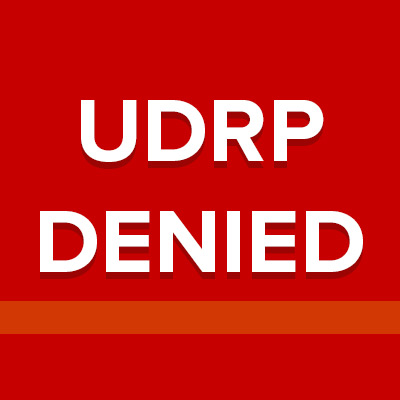
UDRP has been denied.
The domain “You asked for it” .com became the subject of a second UDRP in 17 years, despite Complainant and Respondent being the same as in the 2000 filing.
The original UDRP for YouAskedForIt.com was one of the earliest cases decided at the National Arbitration Forum, and at the time, the domain was ordered to remain with its registrant.
YouAskedForIt.com was registered in 1998, according to DomainTools.
After 17 years, the same Complainant filed a second UDRP against the same Respondent, who raised the issue that such action is barred by res judicata.
What is res judicata?
Res judicata or res iudicata, also known as claim preclusion, is the Latin term for “a matter [already] judged”, and refers to either of two concepts: in both civil law and common law legal systems, a case in which there has been a final judgment and is no longer subject to appeal; and the legal doctrine meant to bar (or preclude) continued litigation of a case on same issues between the same parties. In this latter usage, the term is synonymous with “preclusion”. In the case of res judicata, the matter cannot be raised again, either in the same court or in a different court. A court will use res judicata to deny reconsideration of a matter.
In this case, the Complainant submitted additional information, asserting that res judicata is not applicable, as in 2012 they acquired a trademark for YOU ASKED FOR IT, with a claimed date of first use in 1992.
The Respondent, followed with these statements
- Respondent disputes Complainant’s claim that the 1950’s television show is covered by Complainant’s YOU ASKED FOR IT mark. Further, Complainant has not used mark continuously since 1992.
- Respondent has rights and legitimate interests in the domain name. The domain name is a common phrase that is generic and Complainant does not have exclusive use of the phrase. Respondent’s use of the domain name is a legitimate noncommercial or fair use.
They also provided information regarding the relationship of the first Respondent to the current one:
[…] Respondent was a Director and Co-CEO of his company, Law Street, Inc. Respondent was a founder, dominant officer and significant major shareholder of his closely-held company, Law Street, Inc. Respondent holds and maintains the company domain name <lawstreet.com> — along with other domain names — associated with Law Street’s online business portfolio for future use. Law Street’s business address is the same as that of Respondent as indicated in the Exhibit. Respondent’s interests and those of his company were integrally-related and fully coincided during the prior case and those interests continue to coincide.
Respondent managed and controlled the company and sought to protect the company from adverse actions, as such actions would directly impact and affect Respondent. Complainant’s prior case is one such example of an action considered adverse to the interests of Respondent at the time. Complainant’s recently re-filed action is similarly considered adverse to the interests of Respondent.
As noted from the indicated appearances in Complainant’s prior case, Respondent actively defended his company Law Street, Inc. against Complainant’s claims at that time. Likewise, Respondent is again actively defending against Complainant’s recently re-filed action for a second-time. Respondent believes himself to be soundly in privity with his own company, Law Street, Inc., and vice versa. As such, Respondent believes the application of res judicata is warranted, in line with the UDRP consensus view on re-filed cases (WIPO Overview 2.0, Paragraph 4.4), UDRP legal precedent and the case law according respect to a prior judgment.”
The Panelist was not convinced by the Complainant’s argument and stated the following, ordering the domain to remain with the Respondent:
“However, the Panel finds that the mere fact of and evidence for passive holding of the disputed domain name for more than 16 years, various promotional activities for Complainant’s mark, and obtaining a trademark registration for Complainant’s mark since or after the decision of the previous case do not constitute the discovery of credible and material evidence which could not have been reasonably foreseen or known at trial and are insufficient to reverse the panel’s judgment on the merits of UDRP ¶ 4(a)(iii) in the prior case on the same domain name.
As such, the Panel determines that Complainant has not met the burden of demonstrating the need for additional review, and thus it holds that this proceeding is barred by the Forum’s earlier decision, FA0002000093669 (Nat. Arb. Forum, April 1, 2000).”
Read the full text of the UDRP decision on YouAskedForIt.com.












